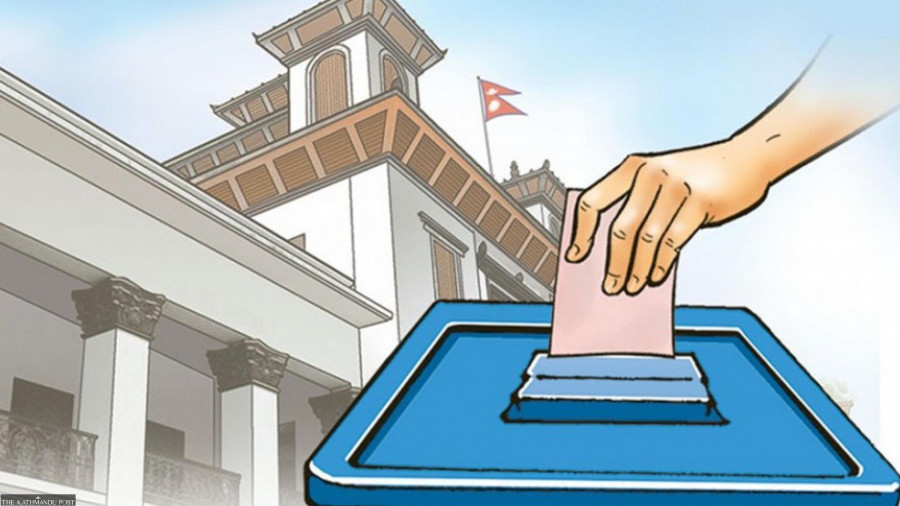Politics
The right and responsibility to vote
Every vote matters and those who are eligible to vote, experts advise, should not squander the opportunity.
Purushottam Poudel
As the country prepares to vote in general elections on Sunday, politicians, observers and experts have laid emphasis on civic responsibility, which effectively means every eligible citizen exercising his or her voting rights judiciously in order to pick the right candidates.
The right to vote is the most celebrated amongst democratic rights. Not every citizen can vote, but those who are eligible, have an important role to play as every single vote matters.
Some incidents related to past elections are signs of how important each vote can be.
KP Sharma Oli, the current CPN-UML chair, who had contested the election to the House of Representatives in 1999 from Jhapa-6, won with a slender margin. While Oli received 18,909 votes in the election, his closest competitor from the Nepali Congress got 18,892 votes. Oli won by just 17 votes.
Rajendra Parkash Lohani of UML won the 1999 House of Representative election from Nuwakot-1 with a margin of 15 votes against Parkash Chandra Lohani of the Rastriya Prajatantra Party. Prakash Chandra Lohani filed a petition in the court requesting a recount. The result of the recount that was announced after eight months came in Prakash Chandra’s favour, invalidating Rajendra Parkash’s win.
Similarly Dev Shankar Poudel in the 1994 House of Representatives election won from Ramechhap-1 with a razor-thin margin of 11 votes.
Speaking to the Post, Parkash Chandra Lohani said: “Every vote counts in elections, so cast your valuable votes responsibly in order to strengthen our democracy.”
According to Article 84 (5) of Nepal's Constitution, any citizen of Nepal who has reached the age of 18 has the right to vote. It implies that around 18 million Nepalis can vote for the candidates to represent them for the next five years.
The country will hold the seventh election to elect lawmakers (including the two Constituent Assembly polls) since the restoration of democracy in 1990. This will be the second federal and provincial elections since the promulgation of the 2015 constitution.
Elections are vital for strengthening the political system as well as the country’s other democratic apparatus. However, people are also disenchanted by the overpromising and underdelivering political parties and their leaders and by extension with the electoral system. As a result, many people choose to opt out of the electoral process.
The percentage of votes cast in an election also shows the citizens’ level of awareness and their faith in the democratic system.
Elections are a way of punishing wrongdoers and rewarding the right ones, so experts urge one and all to take part in the process.
"Elections strengthen democracy," former Chief Election Commissioner Ayodhi Prasad Yadav told the Post. "It is the duty of every eligible citizen to take part in the election. The government cannot function without its citizens. In fact, you cannot imagine a government without citizens. As a result, the voters’ participation in the election, which selects the government to lead them for the coming five years, is vital.”
Voting is the simplest method to demonstrate civic responsibility. If good candidates are elected, they can then correct the wrongs in governance.
But a troubling trend of deliberately making one’s vote invalid is growing among urban youths as a way of expressing their frustration with politicians.
“Invalid votes are growing in urban areas,” Pradip Pokharel, chairman of the Election Observation Committee Nepal, told the Post. “People are knowingly invalidating their votes as voters in Nepal do not have the NOTA [none of the above] option on ballot paper.”
During the 2017 elections and last May’s local elections, many people had put their stamps outside the election symbol box, invalidating their votes. Experts believe if an option like NOTA was on the ballot paper, people wouldn’t invalidate their votes deliberately.
But lack of voter education is the number one culprit for high vote-invalidation.
Chief Election Commissioner Dinesh Thapaliya believes there will be fewer invalid votes this time.
Asked about the tendency of some people to intentionally invalidate their votes, Thapaliya urged one and all not to waste their vote which is both a privilege and a responsibility. “We humbly request you all not to deliberately invalidate your votes. This won’t do anyone any good,” said Thapaliya during a recent interview with the Post.




 18.12°C Kathmandu
18.12°C Kathmandu















